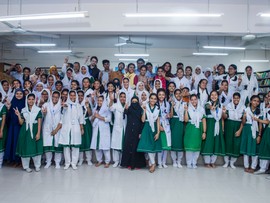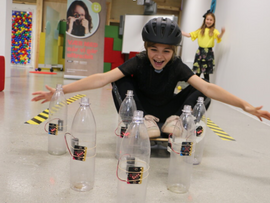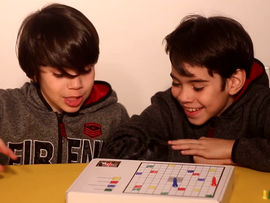21st Century Schools
‘Imaginations went wild’: engaging hard-to-reach children with the micro:bit
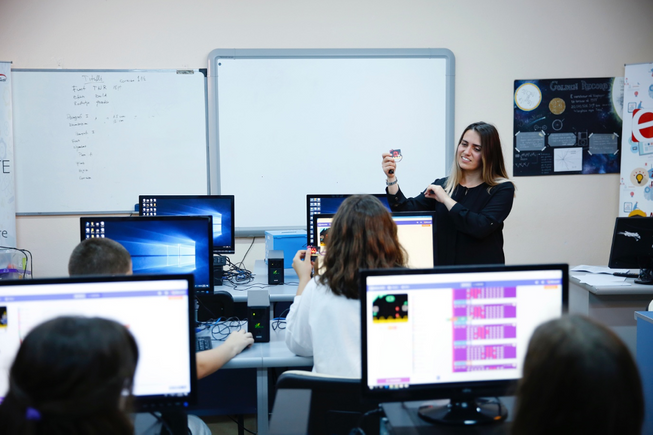
British Council
With the help of the British Council, teachers in the Western Balkans region are discovering a new way to reach disengaged students. A project aiming to equip 1 million young people with the skills they need to compete in the global labour market has shown that hard-to-reach children are often inspired by the micro:bit.
The 21st Century Schools programme is designed to build long-term stability in Albania, Bosnia and Herzegovina, Kosovo, North Macedonia, Montenegro and Serbia by boosting young people’s employment prospects. Teaching practice is being transformed in order to give students problem-solving, critical-thinking and digital-literacy skills.

I’m always finding a way to get my students involved with the micro:bit!

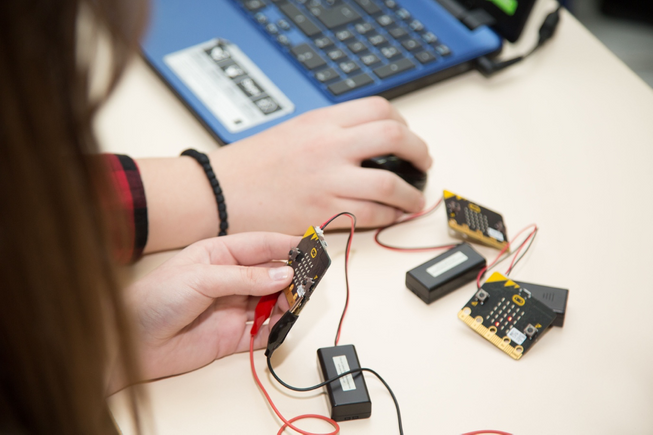
British Council
For the first phase of the project, launched in 2017, 610 educators from 60 schools attended a five-day course that introduced them to the micro:bit and taught them computational thinking concepts. Each school received 30 micro:bits. The hope was that the teachers would allow more space for critical thinking, creativity and cooperation in their classrooms.
A report evaluating the project suggests that disengaged students are responding to this fresh approach. A teacher in Serbia said: “There is one student with ADHD in one of my classes. I had tried almost everything, but I couldn’t calm him down. Then I showed the micro:bit to him and showed him how to code ‘rock, paper, scissors’. He was so thrilled and now I’m always finding a way to get him involved with the micro:bit.”
All the teachers surveyed for the report said they thought the micro:bit was a useful teaching tool, while 93% said they believed the micro:bit would inspire students in the classroom. 90% thought the micro:bit would inspire students about computing and coding outside the classroom.
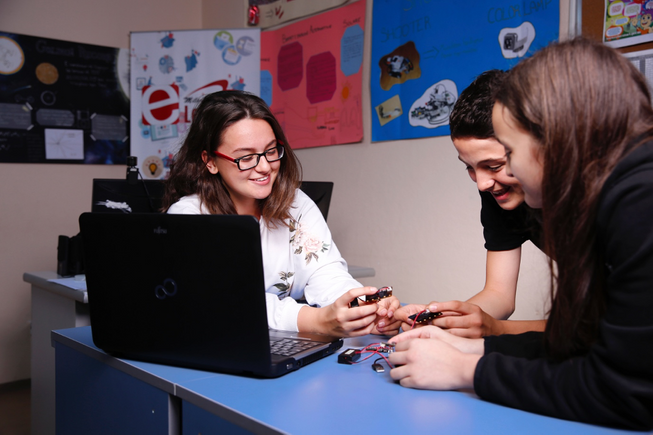
British Council
Another teacher in Serbia said: “As soon as they took the micro:bit in their hand, their imaginations went wild. They started asking questions like ‘what if we try this?’, ‘what if we connect the micro:bit with this?’, ‘what would happen if we did this?’. That is the key – learning to solve non-routine problems. Children are becoming creative.”
The full 21st Century Schools programme launched in early 2019, with the goal of reaching up to 1 million children in 4,500 schools over the next three years. To extend access to teachers, a micro:bit online training course was developed and translated to all local languages as an innovative approach to support the use of micro:bit in teaching classes. By spring 2020, up to 10,700 teachers across the region had completed training, 71% of whom were female.
The British Council is also seeking to ensure that lack of equipment is not a barrier: by the end of the project, each participating school will have at least one classroom equipped to support lessons in coding.
britishcouncil.me/en/programmes/education/21st-century-schools
